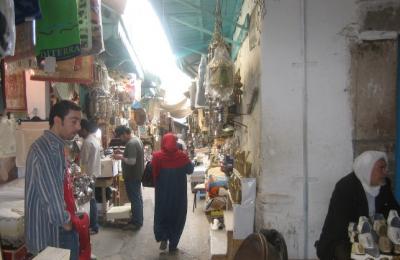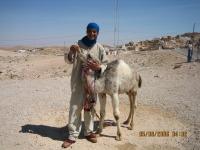The locals lived on what they could grow on their garden plots. Most of the families kept goats, but some also had a cow. Keeping a cow was not easy, but a cow could provide the essential part of a family’s diet. Owners of farm animals could cut the grass from the furthest corners of the collective farm meadows. You could bring home this hay only when spring was coming - when warm sunlit days alternated with very cold nights. Then you set out on the crusty snow, in the middle of the night, with your sled, to get the hay. You had to bring it home, before the crust melted. You did not go alone, but in a group - there were lots of wolves in the area, and tales of horror abounded about them.
The villagers were native Russians. If you were to ask, how they reacted to us, you would find the question difficult to answer. Presumably nothing positive was said to them about us before our arrival. Some parents did not allow their children to play with Estonian children. But we also found people who demonstrated understanding, and even compassion, towards us. In any case, to them we were strangers from a totally unfamiliar world, the likes of whom had never before been seen in those parts. They came to feel our clothes and marvelled at the smallest article that we had happened to bring along - a watch, a coloured pencil, a garter, even our stewpot. I remember how the family with whom we stayed the first night in Malyshi came to watch us eating breakfast. Even the adults stood in a circle around us (we were sitting on the floor and eating). They had never seen cheese before.
Many of the people in the area seemed to be related - either distantly, or more closely - to one another. There were two main surnames - Malysev(a) and Tokarev(a). Our landlady’s name was Anna Sergeyevna Tokareva, but she was called Ivanikha, after her husband Ivan. Such was the custom there.
Advertisement / Reklaam
Advertisement / Reklaam
How did we manage to settle in and get used to the conditions there? We “settled in” in one corner of Ivanihha’s room where we also had a table at our disposal. At night our living-space was extended to include sleeping spaces on the floor beside the stove. In the winter, the land lady allowed us join her on the sleeping platform or allowed us to sleep on top of the stove. When we arrived, mother and Eva were immediately sent out to work in the fields. Mother was not used to physical labour, and it was too much for her. But Eva was a hard worker, in spite of her youth. I could also help with some jobs. I remember pulling flax out in the field. In the morning a section of the field was measured and assigned to each worker. By evening all the flax had to have been pulled from that section, tied in bunches, and stacked. Even though we tried to copy local working methods, we didn’t know how to pull flax properly. At the end of the day, our hands were bleeding, and we had not filled the quota. The next morning we bound our hands with rags and carried on pulling to fill the previous day’s quota. I don’t remember any more, how many days it took us to fill that particular day’s quota. The measure of all work on the collective farm was a “trudodeny” (one quota day). You were paid according to this as well.Every morning the brigadier (overseer of the work) went through the village tapping on the walls of the houses with his stick and, in a loud voice, assigning tasks for the day to all the villagers. He made so much noise that you could hear him from some distance. Half asleep, I tried to figure out which house he was at, at the moment. By the time he tapped on our house, it was time to get up quickly and go to work with mother (sometimes I joined her later). In the winter, the steps of the brigadier crunching on the snow could be heard inside, in our room. Dear me, how I remember every little detail of this - even now!
Advertisement / Reklaam
Advertisement / Reklaam
Nothing heralded the coming of winter, and later, it was slow to give way to spring. In one night the pond behind the village was covered with ice, transparent and smooth as glass. A few days later you could already walk on it. One time Eva was able to borrow some skates from somewhere. They were made out of wood and could be fastened to your footwear with straps tightened by wooden screws. We couldn’t fasten these skates to our shoes. Our landlady lent us her felt boots, so we could get the skates on. That a girl was going skating was unseen and unheard of in these parts, and that is why most of the village children had come to watch. I was dying to show them that I could skate (because I had learned to skate ages ago on the Tallinn Science High School rink across the street from our house). But the felt boots turned out to be too big for me, and I did not get to skate on the wooden skates.In the wintertime you worked at hauling logs, cutting trees, and threshing. Mother’s strength was all used up - she could not do any of this work. Eva toiled on. You were paid for these “trudodenye”s but once a year - in the wintertime - and the pay was a pittance. We were given some peas, and if I am not mistaken, some kind of grain. Once in a while, Eva was able to get work outside our village. Once she managed to get work loading bags of salt in a river port. This was very strenuous but very lucrative work. If you managed to hide salt in your clothing and bring it home, you could exchange it for bread. Eva also went to a larger community on the river to arrange logs for a timber drive.
(To be continued)




















